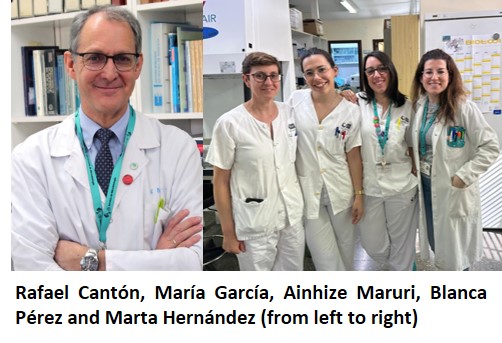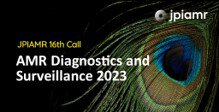IRYCIS participates in a new European project to enhance the rapid detection of antimicrobial-resistant bacteria

The Biology and evolution of microorganisms group of IRYCIS participates as partner of the European project ERADIAMR (Effective RApid DIagnostics and treatment of AntiMicrobial Resistant bacteria), awarded by the Joint Programming Initiative on Antimicrobial Resistance (JPIAMR) in the 2023-Development of innovative strategies, tools, technologies, and methods for diagnostics and surveillance of antimicrobial resistance call, and funded by Instituto de Salud Carlos III (ISCIII).
ERADIAMR is a two-year project coordinated by the University of Exeter (United Kingdom), which brings together academics, clinicians and industrial partners from across Europe. The project aims to develop new disruptive technology to drastically reduce time-to-result of phenotypic antimicrobial susceptibility testing (AST) of bacteria, providing critical information to the clinicians to select the best antimicrobial treatment.

A timely detection of AMR is crucial in several medical conditions, including sepsis that causes 11 million deaths per year world-wide. The ERADIAMR project will develop effective and rapid diagnostics of AMR in clinical isolates by harnessing the power of a novel interdisciplinary multi-technology approach. They will combine whole genome sequencing and conventional AST with two emerging and rapid AST technologies, namely nanomotion technology platform and single-cell microfluidics-microscopy. They will apply this new approach to a large collection of clinical isolates of the so called ESKAPE pathogens that are key players in infections, such as sepsis, and are becoming increasingly resistant to conventional antibiotic treatments. By integrating and cross-validating the multi-technology data that will be acquired, they aim to develop and implement a rapid and effective diagnostic platform that will perform AST and detect AMR within 4 hours and will predict the optimal antibiotic drug and adequate dose for each specific infecting bacterial strain. As such, this project will pose a steppingstone for future rapid diagnostics and high throughput, personalised antibiotic treatment optimisation to rapidly overcome AMR.

The Spanish participation in Madrid is led by Dr Rafael Cantón and his research team: Dr. Marta Hernández García; Dr. María García Castillo, Phd. Blanca Pérez Viso and PhD. Ainhize Maruri Aransolo. This participation focuses to establish a collection of ESKAPE clinical isolates, IRYCIS will use Resistell nanomotion technology to rapidly measure the AST of each strain and compare to each strain resistome, at the same time they will use ISO standard AST technologies to fully characterize the antibiogram/phenotype of these isolates.


